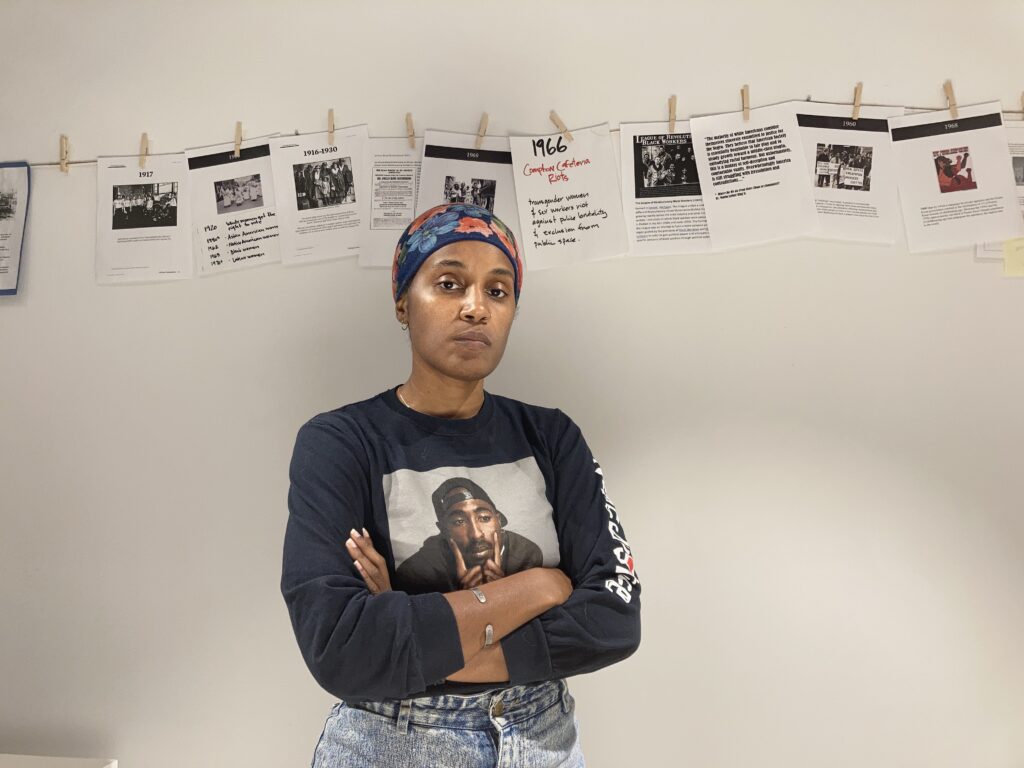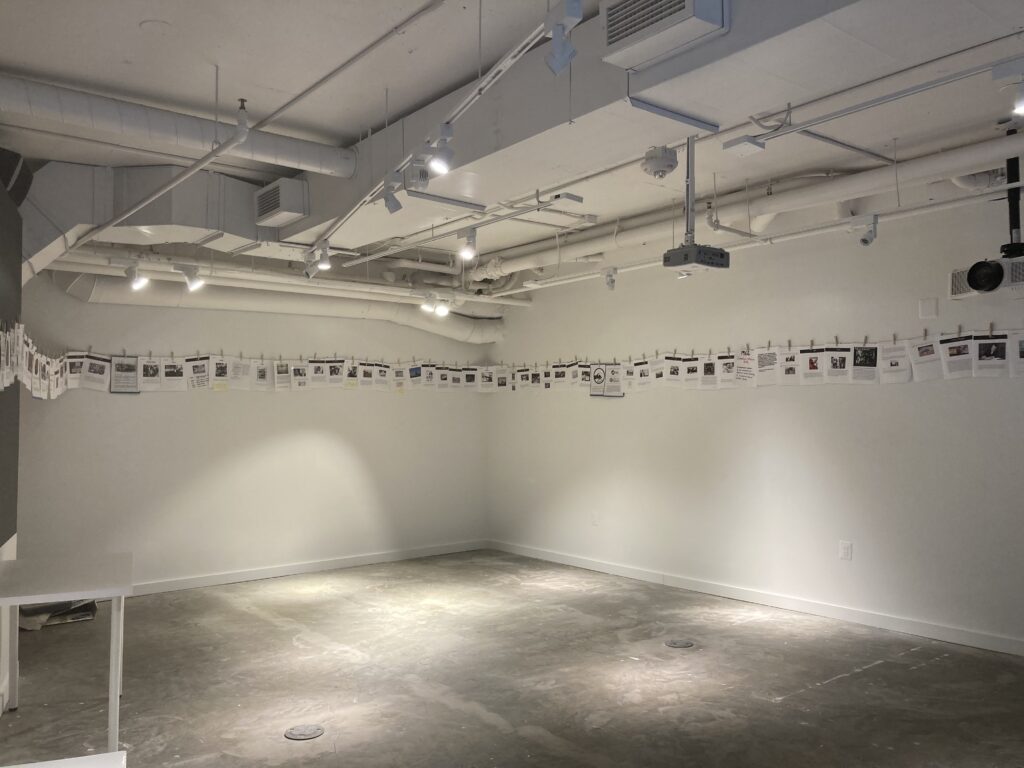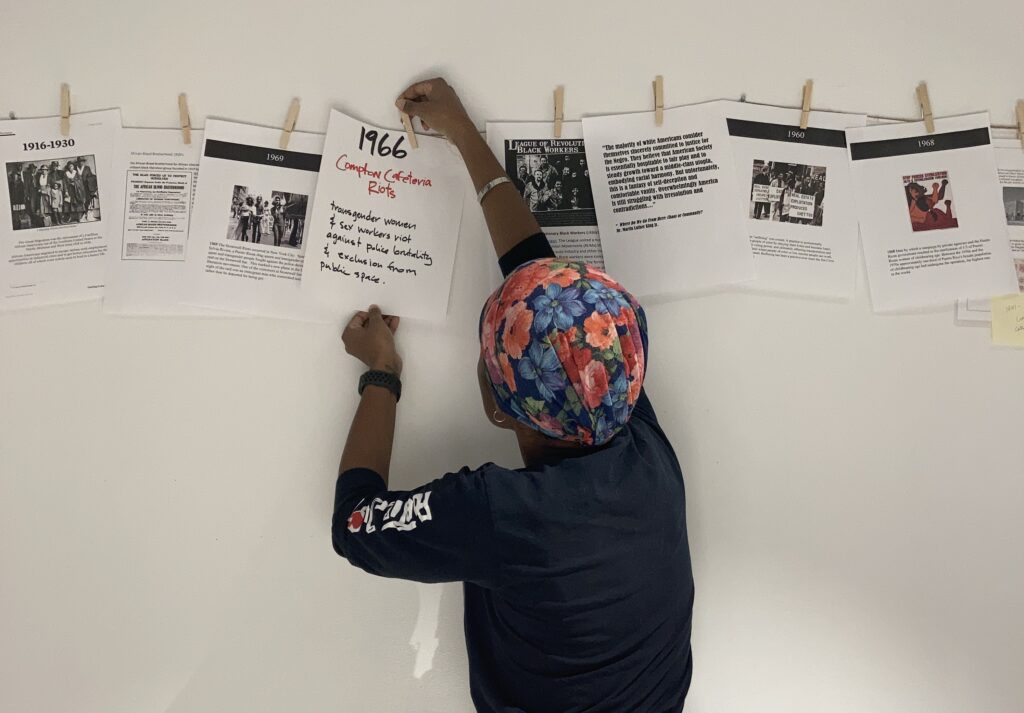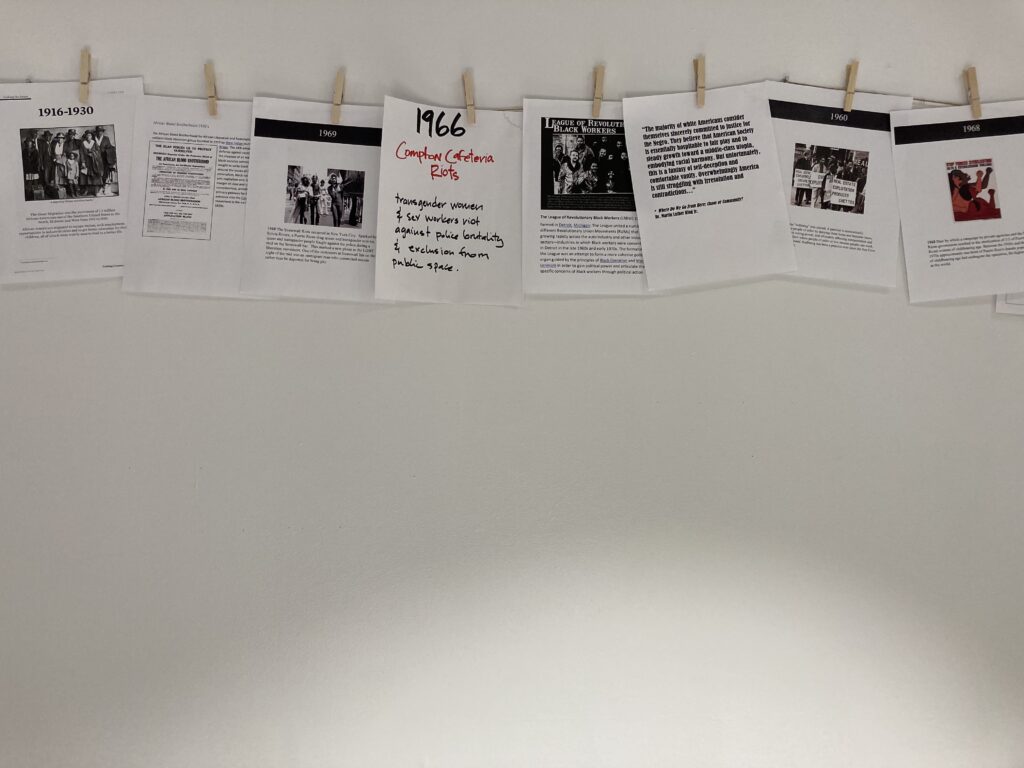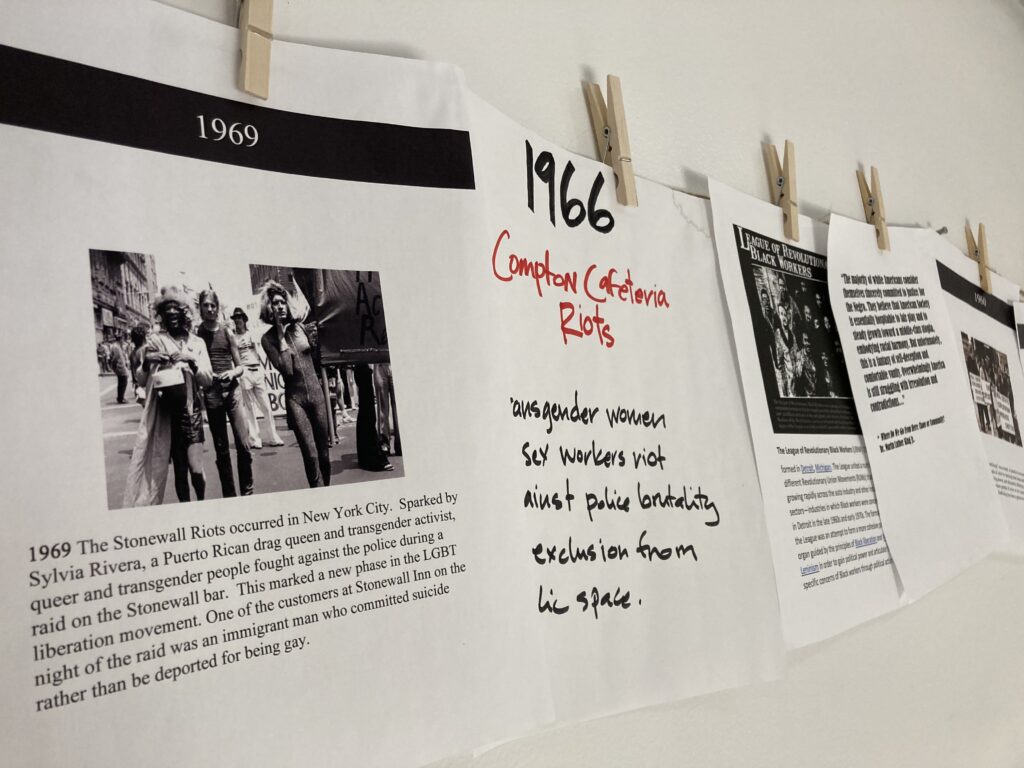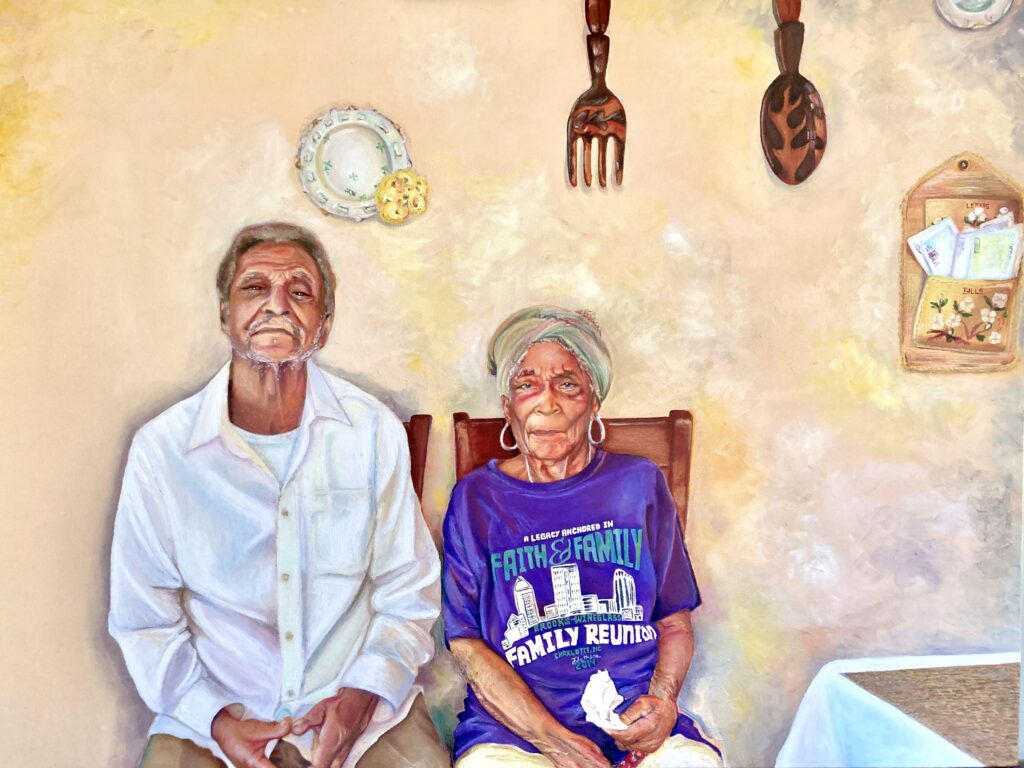Brittney Washington: Residency
[Research & Development]
WPA’s Project Space, 2124 8th St. NW, Washington, DC 20001
Multidisciplinary artist and organizer Brittney Nicole Washington was WPA’s first Artist-Organizer-in-Residence from November 2020–January 2021. During the residency, Brittney used our gallery space to research and build a historical timeline and visual anthology of Black and Indigenous Joy and Resistance in the United States. This timeline will exist as a physical installation, an online resource, and eventually, as a printed publication.
Read our reflection interview with Brittney Washington below to learn more about how she used the experience to further her research
An Interview with Brittney Washington
WPA: During your time in residence at WPA, is there anything you uncovered in your research or creative practice that you would like to share?
BW: The spirit of Sankofa—the call to go back and get it—has been omnipresent. Research has felt most like re-membering; as if I were reaching into a box of collective memory, sifting my fingers through narratives known and unconscious, and then gathering those pieces to work into a more complete picture. It’s a process of returning these stories to ourselves.
It feels important to raise consciousness around the power of narrative. One of the oldest and most effective strategies of oppressors is to deprive people of their stories, thus severing a critical throughline to their individual and collective identities. In the U.S., when we are told stories of Black and Indigenous success or triumph, those narratives are filtered through the lenses of the very systems of oppression we are working to dismantle. I partner with other artists, historians, organizers, and community members to define joy, resistance, success, and triumph in ways and with values that are aligned with our visions of liberation.
The residency at WPA offered the space to sharpen my analysis and develop ideas for how to do this work justice. I must care for myself, be patient with and trusting of the process, and become ready to get free with others.
WPA: How do you see the connection between Black & Indigenous joy and Black & Indigenous resistance?
BW: I must first acknowledge that I’ve been socialized to think of the two concepts in specific ways. This work begs questions like, “What is resistance? What qualifies as resistance? What is joy?Who gets to be joyful and what does that look/sound/smell/taste/feel like across time and space?” My work is to unpack and decolonize my ideas to make space for liberated understanding.
Next, I approach understanding the connection between the two with curiosity and attention to nuance. First, I observe joy as an “energy for change”1 which supports resistance. Here, I think of the ways that we engage with cultural devices like art, music, dance, bread-breaking, and social media to express ourselves, build connections across shared values, and grow/sustain our movements. There is also joy as a tactic of resistance. Here, I recall queer and trans folks voguing in front of police lines and Omolara Williams McCallister’s Solidaritrees. Both practices employed joyful expression as a tool to visibilize Black and trans lives. Finally, there is joy as an organic part of our lived experiences. Think of the feelings that come when we connect with those we cherish, laugh hardily, or move our bodies in ways we enjoy. These distinctions help expand how I/we navigate research going forward.
I’ve come to understand that resistance and joy are deeply connected. While this edification was newer for me, folks have been talking and writing about this relationship for years (see “Uses of the Erotic” by Audre Lorde, for example). Both resistance and joy–in all of their forms as expressed and embodied by Black and Indigenous people–are a part of the human experience.
WPA: Where is this research taking you next?
BW: Two things feel especially important as I continue this research (which will ultimately become a timeline and anthology). First, this work is only possible in deep partnership with others. My collaboration with Omolara Williams McCallister has been critical. I seek the funding and infrastructure to invite more folks in, and to support (and pay!) a team of Black and Indigenous artists, storytellers, organizers, and community members to co-create this multimedia work.
Second, I feel called to explore my personal and familial histories. Working in the WPA space energized me to revisit and finish a painting of my grandparents. It reminded me that I also have stories to re-member and tend to. I intend that the Black & Indigenous Joy and Resistance Visual Anthology promote collective healing by helping us to steward and care for our stories. This means healing for me, too.
1 Audre Lorde, “The Uses of the Erotic: The Erotic as Power,” Sister Outsider: Essays and Speeches (Berkeley: Crossing Press, 1984), pp. 53-9.
About the Artist
 Brittney Nicole Washington is a Southern queer Black artist, mama, doula, art therapist, strategist, and troublemaker. Her multidisciplinary work is grounded by the understandings that 1) our most important responsibility is dismantling the power arrangements that maintain oppression; 2) everyone has different points of entry into politicization and social justice movements; and 3) art is a powerful portal to healing, imagination, and movement for that purpose.
Brittney Nicole Washington is a Southern queer Black artist, mama, doula, art therapist, strategist, and troublemaker. Her multidisciplinary work is grounded by the understandings that 1) our most important responsibility is dismantling the power arrangements that maintain oppression; 2) everyone has different points of entry into politicization and social justice movements; and 3) art is a powerful portal to healing, imagination, and movement for that purpose.
Brittney uses painting, illustration, and filmmaking to uplift BIPOC experiences and perspectives. Her work decolonizes ideas of normality and invites radical empathy across differences. As a racial justice strategist and cultural organizer, Brittney facilitates sessions that illuminate the historical events that shape our current experiences of racialized poverty, trauma, and disconnection. She organizes projects where folks can be brave, vulnerable, and imaginative about how to bend our world towards justice together. She also serves as a visual arts producer for justice groups such as Black Lives Matters DC, The People’s Demands DC, Service to Justice, and Movement Matters.

